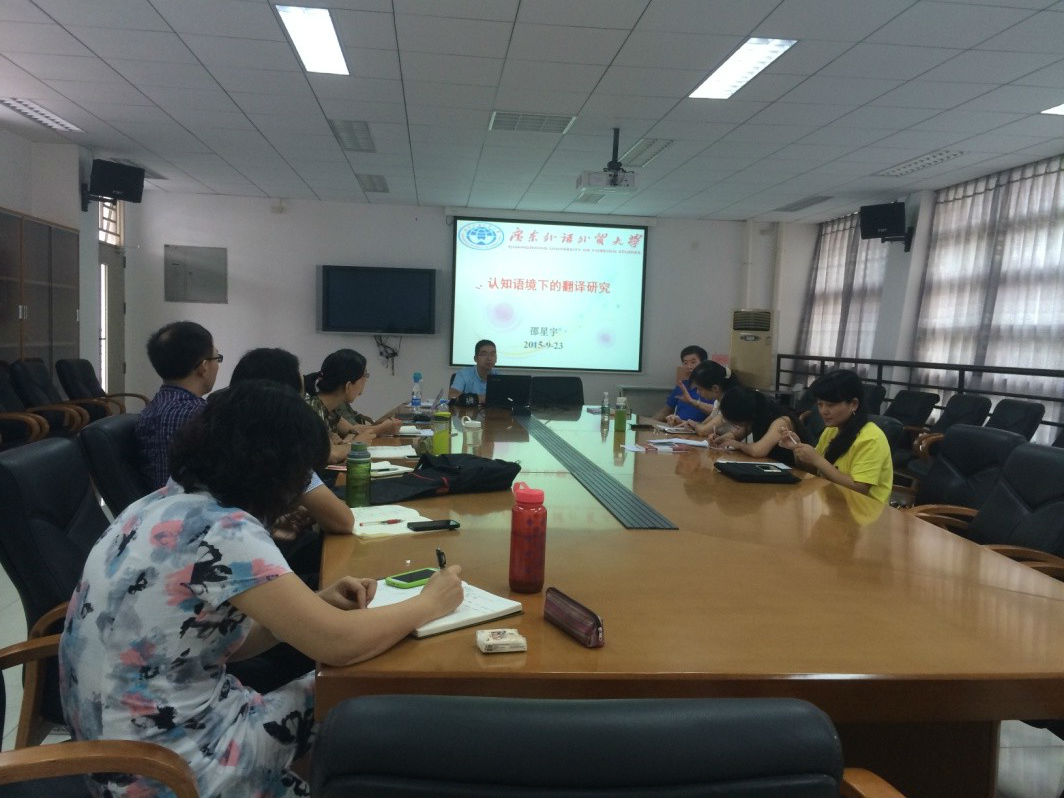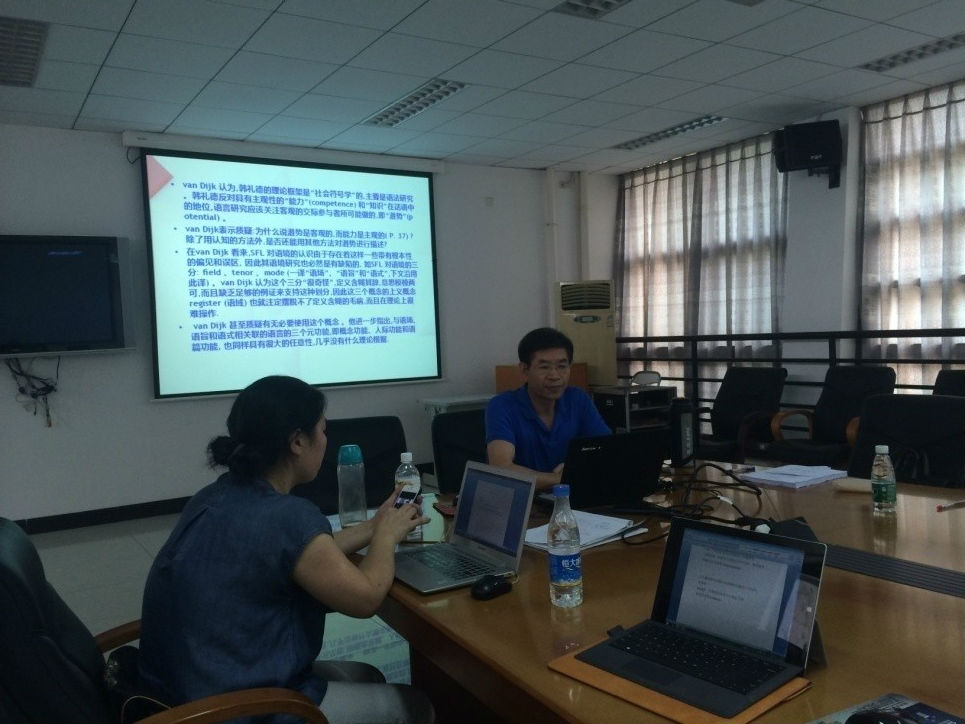A Brief on Forum for Doctoral Students
Topic: Cognitive Context and Translation Studies
Time:15:20-17:30 (23 Sept., 2015)
Venue:A421, Building 6
Participants:Doctoral students, teaching staff and visiting scholars
Chairperson:Prof. Zeng Lisha
Speaker:Shao Xingyu & Prof. Zeng Lisha
Recorder in English: Wang Junchao
The forum started by a presentation given by Shao Xingyu, a PhD candidate, on the topic of “CognitiveContext and Translation Studies”. The presentation consists of four parts, covering thedevelopment of context of various types, thedefinitions of cognitive context, critical review of related literature and caseanalyses. Seeing translation studies from the cognitive context perspective, Mr. Shao critically pointed out the problems haunting existing researches and exposed possible spaces forfuture studies.
 |
| PhD candidate Shao Xingyu gives topic speech |
The presentation was commented by Prof. Zeng, who then made remarks on how to conduct categorizational researches with analysis of typical examples which are closely related to Mr.Shao’s presentation.
For a start, Prof. Zeng gavea brief but brilliant explanation of what “研” and “究” refer to.The former aims to explore the essential features of the research objects respectively, while the latter is meant to conduct theoretical or empirical studies of the laws or rules on the basis of the findings. And he advocates systematically integrated researches. The following one hour was spent on the“demonstration and verification of cognitive context in translation studies”,covering his critical reading of foreign literature on cognitive context, thecognitive processes or mechanisms involved in translation and translation of literature and communicative texts. He then presented several typical cases,mainly from but not exclusively to short novels, demonstrating and explainingthe thought moves or traces involved in working out the contextual meanings of the translation difficulties. By explaining the translation processes logically and by illustrating the points with a wide range of representative cases, hediscussed cases involving translating President Xi’s exchange of gift withPresident Obama (“evergreen friendship or fostering good-will”), book titles translation (Xi Jinpin, The Governor of China), and some other difficulties in translating business annual reports (e.g., Buffet’s Bites), and words ofsemantic shift in literature works (e.g., “places”, “collector”, “undertaker”,etc.), which made the lecture an insightful experience and a great joy.
 |
| Prof. Zeng Lisha gives a remark |
His lecture was thought-provoking as ever and evoked questions from those present such as what the difference between“cognitive context in translation studies and translation from cognitive context perspective”, between “cognitive context and contexts in traditional sense”, “how to generalize features with concepts in case analysis”.
Two hours might be absolutely long for a hot afternoon, but was relatively short for such an insightful and interesting forum, where the doctoral students were offered a good opportunity of exchanging ideas on cognitive context and how to choose,and deepen a research topic.
